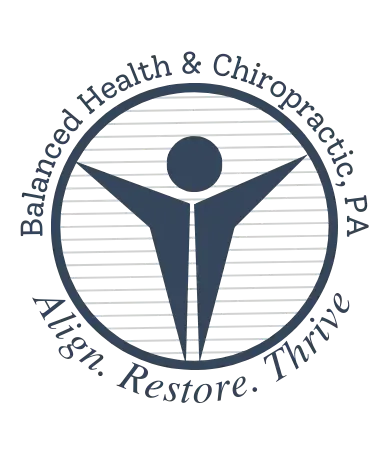
Heart Disease Risks and Prevention for Women
Heart Disease Risks and Prevention for Women
Heart disease affects millions of men and women each year, but it has increasingly become one of the leading causes of death for women in particular. Despite this, heart disease is often still seen as a “man’s issue,” which unfortunately leads many women to overlook the warning signs or underestimate their risk.
Whether you're in your 30s, navigating menopause, or in your golden years, now is the time to pay attention to your heart. Protecting your cardiovascular health doesn’t have to be complicated, but it does require a combination of awareness, prevention, and proactive care. Here’s what you need to know about the risks and what you can do to protect yourself.
Understanding the Risks of Heart Disease
Heart disease is not a one-size-fits-all diagnosis. It can take many forms, from coronary artery disease and heart failure to arrhythmias and valve disorders. Risk factors for developing these conditions are often similar for both men and women, but there are a few distinctions that make heart health a unique concern for women.
Common Risk Factors (Shared by Men and Women):
High blood pressure (hypertension) – Chronic high blood pressure puts stress on the arteries, making them more prone to plaque buildup and narrowing.
High cholesterol – Elevated levels of LDL (bad cholesterol) can lead to plaque buildup in your arteries, while low HDL (good cholesterol) is also a risk factor.
Diabetes – Diabetes significantly increases the risk of heart disease, especially when blood sugar is not well-controlled.
Obesity – Carrying excess weight puts more strain on your heart and often coexists with other conditions like high blood pressure and insulin resistance.
Smoking and excessive alcohol use – These habits damage blood vessels and accelerate heart disease.
Unique Risk Factors for Women:
Menopause – The hormonal shifts during and after menopause can raise your cholesterol levels and blood pressure, both of which are linked to heart disease.
Pregnancy complications – Conditions like preeclampsia, gestational diabetes, and hypertension during pregnancy can increase your risk of cardiovascular issues later in life.
Polycystic ovary syndrome (PCOS) – This common hormone imbalance is also associated with a higher risk for heart disease.
Autoimmune conditions – Women are more likely than men to suffer from autoimmune diseases such as lupus and rheumatoid arthritis, which can increase inflammation and cardiovascular risk.
What You Can Do to Lower Your Risk
The good news is that many of the most significant risk factors for heart disease are preventable or manageable through lifestyle changes. Even if you have a family history of heart disease, adopting heart-healthy habits can make a substantial difference in your long-term wellness.
Prioritize a Heart-Healthy Diet
Focus on whole, unprocessed foods as much as possible.
Include plenty of fiber-rich vegetables, high-quality proteins, and healthy fats like omega-3s.
Minimize refined sugar, processed carbs, and unhealthy trans fats.
Move Your Body Regularly
Aim for at least 30 minutes of moderate activity most days of the week.
Walking, swimming, strength training, and dancing are all excellent ways to move your body and improve circulation.
Exercise helps regulate weight, blood pressure, and blood sugar—all key factors in heart health.
Manage Stress Effectively
Chronic stress can increase your risk for heart disease by contributing to inflammation, high blood pressure, and poor lifestyle habits.
Incorporate regular stress-reducing practices like mindfulness, breathwork, journaling, or spending time in nature.
Monitor and Maintain Healthy Numbers
Keep track of your blood pressure, cholesterol, blood sugar, and weight.
Routine screenings and check-ups with your doctor will help you identify any issues early.
Don’t ignore warning signs or “brush off” feeling tired, anxious, or unwell—your body is always communicating with you.
Consider Holistic Support
Working with a functional medicine practitioner or health coach can give you a more complete picture of your health. Instead of waiting for symptoms to escalate or for a formal diagnosis to be made, this proactive approach focuses on catching imbalances early when they're often easiest to correct. Comprehensive blood work and functional assessments can help uncover subtle issues with hormones, inflammation, nutrient levels, or metabolism.
By identifying where your body is struggling and offering targeted support through lifestyle changes, nutrition, and supplementation, you can help prevent chronic illness before it starts. Early intervention not only protects your heart, it can improve your energy, sleep, mood, and overall vitality. Prevention is always easier than reversal, and holistic care helps you stay ahead of the curve.
Learn More: balancedhealthks.com/functionalmedicine
Recognizing the Symptoms of a Heart Attack
Many women delay getting care during a heart attack because they don’t recognize the symptoms, which can present differently than in men. While chest pain is still common, women may experience more subtle signs such as:
Pain or discomfort in the back, neck, jaw, or stomach
Shortness of breath (with or without chest pain)
Nausea, vomiting, or indigestion
Unusual fatigue, dizziness, or lightheadedness
Sweating or clamminess
If you experience any of these symptoms, seek medical attention immediately. The sooner you get help, the greater your chances of surviving and recovering without long-term damage.
Heart disease may be a leading cause of death, but it is often preventable. Don’t wait until you’re experiencing symptoms to care about your heart health. The small choices you make each day. What you eat, how you move, how you handle stress truly add up over time. Empower yourself with knowledge, stay consistent with healthy habits, and stay connected with your healthcare provider. Your heart deserves it.
